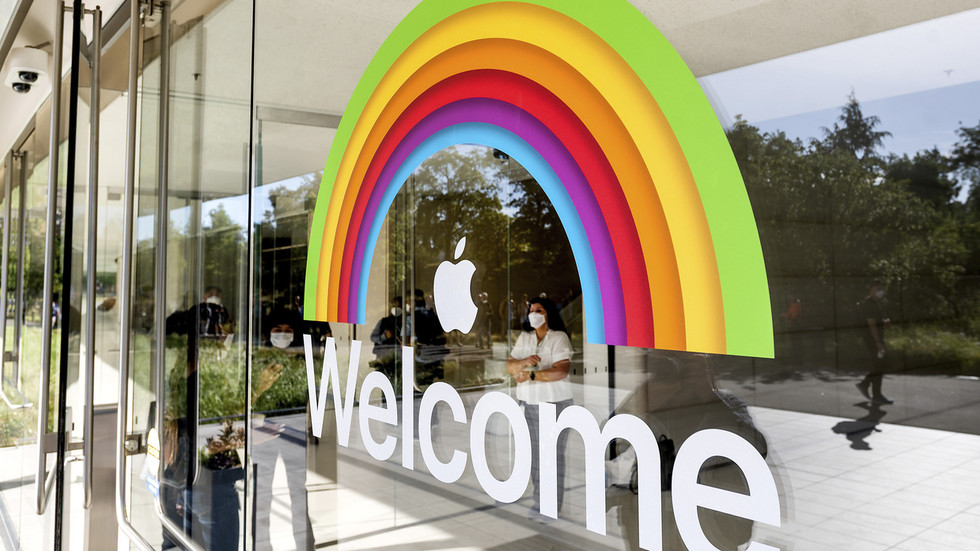As Apple approaches a momentous shareholder vote, the future of its diversity initiatives hangs in the balance, with stakeholders positioned to significantly influence the tech giant’s commitment to inclusivity and representation. This pivotal decision comes at a time when corporate America is increasingly scrutinized for its diversity practices, making it a defining moment not just for Apple, but for the entire tech industry.
The Current State of Apple’s Diversity Programs
Over the last few years, Apple has made strides in promoting diversity within its workforce. The company has publicly committed to enhancing representation across various demographics, including race, gender, and sexual orientation. According to Apple’s own diversity report, as of 2022, 34% of its global workforce identified as a racial or ethnic minority, with women making up around 47% of its global workforce.
However, despite these accomplishments, many shareholders argue that Apple must do more to improve its diversity initiatives. Critics point to a lack of representation in leadership roles and the need for more robust strategies to foster an inclusive culture. As the tech landscape continues to evolve, the pressure mounts for companies like Apple to not only maintain but expand their diversity commitments.
The upcoming vote represents more than just a procedural formality; it is a reflection of the values and priorities of Apple’s investors. Shareholders have the power to shape corporate policies, and their decision could either reinforce Apple’s current trajectory or push for a more aggressive approach towards diversity and inclusion. This vote is particularly crucial as it comes amid growing societal demands for corporate accountability regarding diversity issues.
- Investor Influence: Shareholders can voice their opinions through proxy votes, which can significantly impact the company’s strategic direction.
- Accountability: A favorable vote could mandate Apple to enhance its diversity initiatives, while a negative outcome may result in stagnation or regression.
- Public Perception: The decision will also resonate with consumers, who increasingly prefer to support brands that prioritize inclusion and equality.
Understanding the Stakes
The stakes of this vote extend beyond Apple’s internal policies; they reflect a broader trend in the corporate world where diversity and inclusion have become key performance indicators. Investors are increasingly aware that diverse teams drive innovation, enhance problem-solving, and improve overall business performance. In fact, research has shown that companies with diverse leadership teams are 33% more likely to outperform their peers on profitability.
For Apple, which has built its brand on creativity and innovation, fostering a diverse workforce could be crucial to maintaining its competitive edge. The tech industry has historically struggled with gender and racial disparities, and as the landscape evolves, companies that fail to adapt may find themselves at a disadvantage.
Arguments For and Against Enhanced Diversity Initiatives
The debate surrounding the future of Apple’s diversity initiatives is multifaceted, with strong arguments on both sides. Understanding these perspectives can provide insight into the upcoming shareholder vote.
Arguments For Enhanced Diversity Initiatives
- Broader Talent Pool: Emphasizing diversity allows Apple to tap into a wider range of talent, fostering innovation and creativity.
- Consumer Expectations: Today’s consumers are more socially conscious and expect brands to reflect their values. A commitment to diversity can strengthen customer loyalty.
- Long-term Sustainability: Diverse companies are better positioned to adapt to changing market conditions and consumer needs, ensuring long-term success.
Arguments Against Enhanced Diversity Initiatives
- Potential Backlash: Some shareholders may argue that focusing too heavily on diversity could alienate certain demographics, potentially harming the brand’s image.
- Meritocracy Concerns: Critics might contend that prioritizing diversity could undermine the principle of meritocracy, where hiring and promotions are based solely on qualifications.
- Resource Allocation: There are concerns about the financial implications of implementing extensive diversity programs, especially during times of economic uncertainty.
The Role of Stakeholders and Advocacy Groups
Stakeholders, including employees, consumers, and advocacy groups, have a vested interest in the outcome of the shareholder vote. Many employees have expressed their desire for Apple to adopt more robust diversity initiatives, citing the importance of an inclusive workplace culture. Advocacy groups, too, are closely monitoring the situation, pushing for transparency and accountability in corporate diversity efforts.
Organizations such as the Human Rights Campaign and the NAACP have called on Apple to not only maintain but expand its diversity commitments. These groups argue that diversity is not merely a checkbox but a fundamental aspect of corporate responsibility that can drive social change.
Looking Ahead: What’s Next for Apple?
As the shareholder vote approaches, all eyes will be on Apple. The outcome could set a precedent for how major corporations approach diversity and inclusion in the years to come. If the shareholders vote in favor of enhanced diversity initiatives, Apple may be compelled to reassess its strategies and goals, potentially leading to significant changes in hiring practices, leadership development programs, and workplace culture.
On the other hand, a negative vote could signal a reluctance among shareholders to prioritize diversity, possibly stalling progress in this critical area. In either scenario, the implications will undoubtedly reverberate throughout the tech industry and beyond.
The upcoming vote on the future of Apple’s diversity initiatives encapsulates a crucial moment in the evolution of corporate responsibility. As stakeholders gear up to make their voices heard, the decision will not only impact Apple but could also influence the broader corporate landscape. With diversity increasingly recognized as a driver of innovation and success, the outcome of this vote will be closely watched by investors, consumers, and advocates alike.
In summary, as Apple shareholders face this critical vote, the stakes could not be higher. The future of the company’s diversity initiatives is in their hands, and their decision could either pave the way for a more inclusive and representative corporate culture or signal a retreat from the progress already made. Whatever the outcome, it is clear that the conversation around diversity and inclusion will continue to evolve, shaping the future of not just Apple, but the entire tech industry.
See more Business Focus Insider Team

